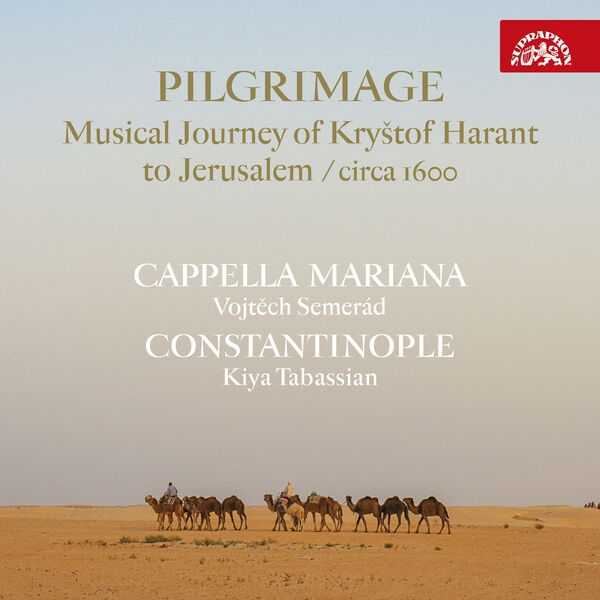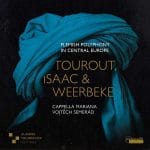

Performer: Cappella Mariana
Orchestra: Constantinople
Conductor: Vojtěch Semerád, Kiya Tabassian
Format: FLAC (tracks)
Label: Supraphon
Catalogue: SU43502
Release: 2024
Size: 747 MB
Recovery: +3%
Scan: cover
01. anon.: Prologue
anon.: Tasbih-i Misri
02. Nour
Harant: Missa quinis vocibus
03. Credo
04. anon.: Naqsh Dar Bazm-e Del
Harant: Missa quinis vocibus
05. Kyrie
06. Tabassian: Namaz-e Sham-e Ghariban
Harant: Missa quinis vocibus
07. Gloria
08. Murad: Chashm-e Mast
Harant: Missa quinis vocibus
09. Sanctus
10. Misri: Pishref-i Misri & Sama’i
11. Harant: Qui confidunt in Domino
12. Seyfullah: Bu Ashk Bir Bahri Ummandir
13. Harant: Maria Kron
14. Ufkî: Mezmur 2 & 4 – Psalm 4
Harant: Missa quinis vocibus
15. Agnus Dei
16. Harant: Dies est laetitiae – Mâhur Peşrev
17. anon.: Otce Buoha nebeského – Dar Nazar Baziye Ma
The subject of different cultures mingling and of the search for a common language is more relevant in today’s globalised world than ever before. However, it has been present in various forms for centuries. An inspiring encounter of rather distant music worlds is the result of the collaboration of Cappella Mariana, focused particularly on Renaissance polyphony, and Constantinople, representing the music tradition of Islam. Their common project imaginarily copies the adventurous pilgrimage undertaken in 1598 by the nobleman and composer, Krystof Harant, who gave a gripping account of it in his book Journey from Bohemia to the Holy Land, by Way of Venice and the Sea. Harant’s complete preserved oeuvre is combined with the music of the exotic lands of the Ottoman Empire, Syria, Palestine, Sinai and Persia, which completes the atmosphere of the places as Harant himself might have experienced it on his journey. The variety of the Middle East nationalities, contributed to by the presence of pilgrims, monks and wanderers, created a very rich mosaic of sounds. As a result, songs in seven languages can be heard on the recording. Harant’s polyphony is overlapped here with songs by well-known as well as anonymous 16th-century Middle-East music masters, using, for instance, texts by the famous Persian poet, Hafez. Listening to the music of a remote culture can be a surprising experience indicating its inner richness, level of education, emotionality, etc. With an open mind, we may discover in these hitherto unknown realms a source of beauty and deep inspiration for ourselves.



